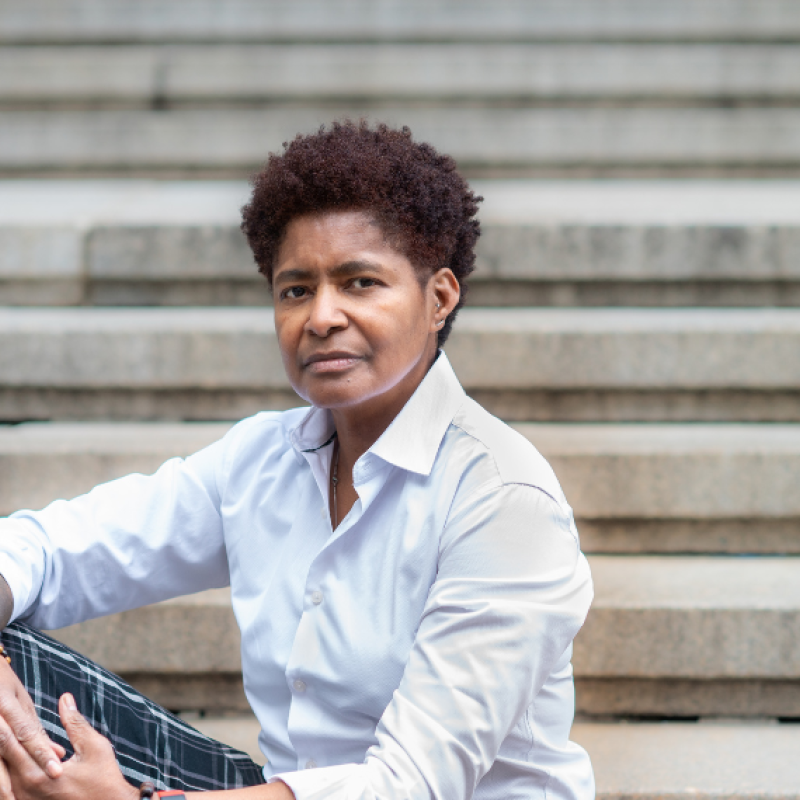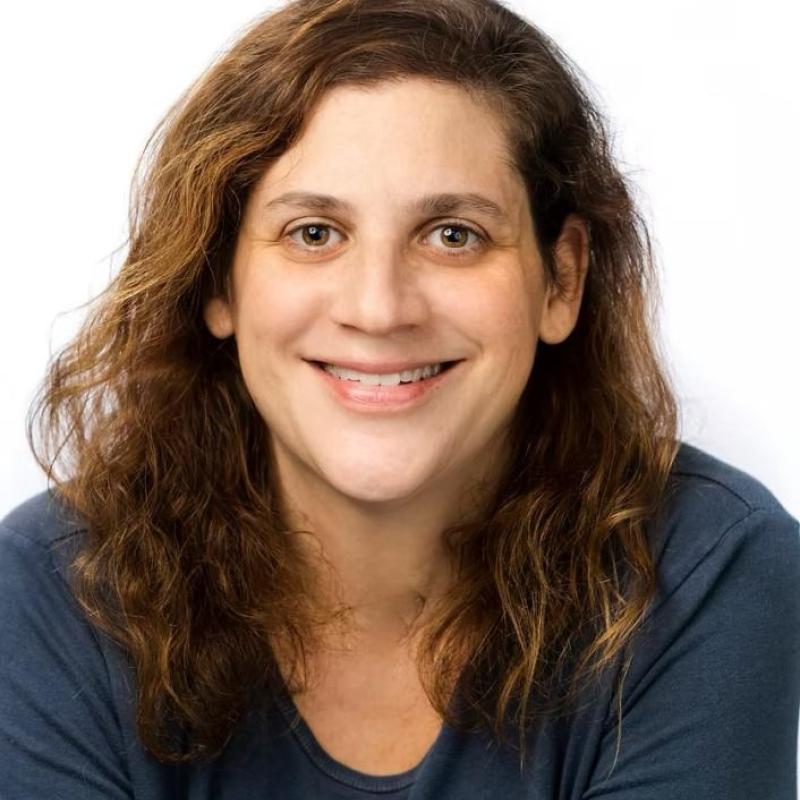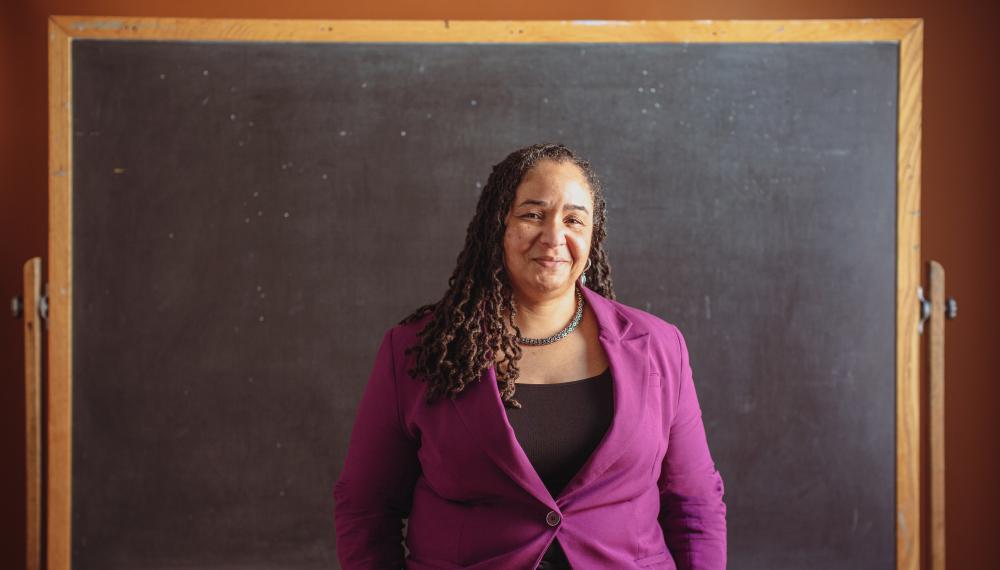
When LaToya Lopez, M.S.W. ’18, LCSW, commutes from Oakland to San Francisco for work each morning, she never knows quite what she’ll find when she arrives there. Lopez is the program director of San Francisco’s Mental Health Rehabilitation Center (MHRC), the only city-run locked facility for clients with severe and persistent mental illnesses.
“We are working with clients that are really acute, somewhat in crisis, but not where they need isolation or restraint,” she said. Most clients are there for further stabilization, restoration and mental health recovery with a goal of returning to the community on the path to live independently. A few are long-term residents prevented by their illnesses from living in a less structured setting. “Our job is to help clients gather the tools and coping skills essential to meeting this goal” of independent living, she said.
Name: LaToya Lopez
Degree: M.S.W. ‘18
Location: Oakland, CA
LaToya’s role at the facility, in operation since 2004, covers everything from assessing and coordinating new client admissions, managing the rehabilitation staff and constructing programming, to clinical consultations with clinicians around client care. She does client crisis management and de-escalation. Thanks to the city’s glacial progress filling vacant positions, she even completes the administrative work of managing a staff and coordinating the facility’s activity calendar while carrying her own client caseload.
It’s a lot, but LaToya loves all of it – especially working directly with high-acuity clients.
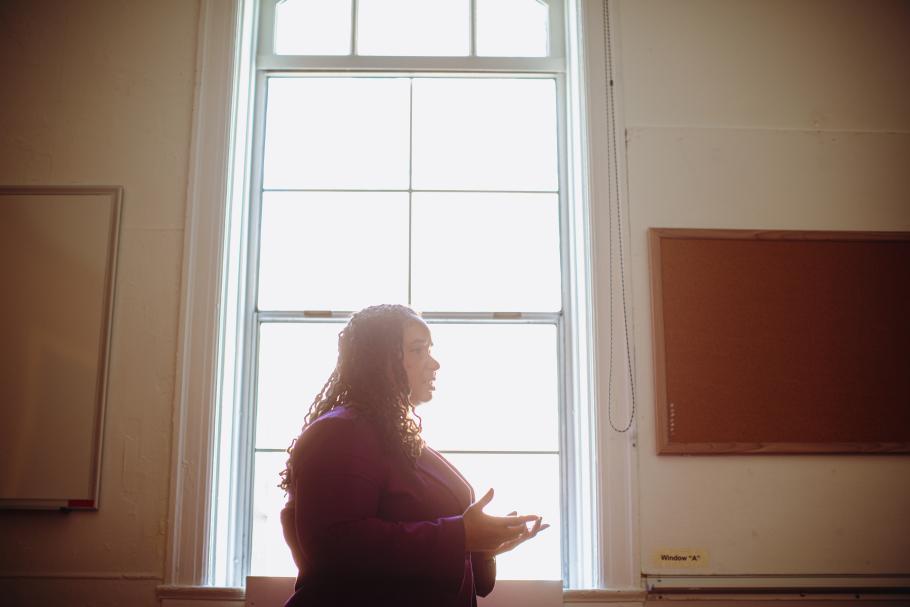
“I have been working in this community with people with severe chronic mental illness for about 14 years,” LaToya said. She started her professional life in another helping sphere, as a vocational specialist. But after a layoff during the 2008 recession, followed by a year of unemployment, the Philadelphia native began to think she would be forced to return east to find work. Then, at Lopez’s California farewell party, a friend mentioned an open role at Progress Foundation, a Bay Area organization that provides residential social rehabilitative services to clients with severe mental illness. Two weeks later, LaToya started the job and never looked back.
About eight years later, when clients started presenting with more severe symptoms, she decided it was time for a social work degree.
Mental illness in the city of San Francisco “was becoming critical,” she said, converging with housing and drug crises. “You needed to have some understanding of what was being presented to you on a much deeper systemic level than having life experience.” She paused her career to attend Smith, completing internships a world apart from her usual niche, at an elementary school and then in a college counseling center.
“I have nothing against children; I just don’t do children,” she said. “It was like a whole other world to me.”
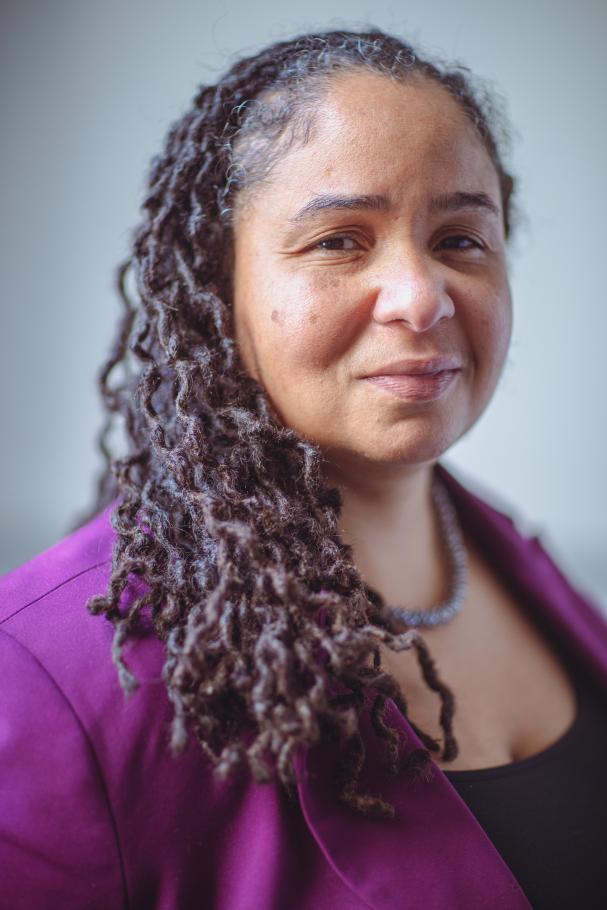
After earning her M.S.W., she quickly returned to her niche – her two M.S.W. work experiences solidified how much she appreciated her work with people with severe and persistent mental illnesses. It’s work that she pairs with frequent self care to prevent burnout, in the form of chocolate, UC Berkeley women’s basketball games with friends, holistic care and her faith. As a Practitioner (RScP) in her Religious Science community, LaToya even serves others on Sundays.
A life of service can take a toll but, to LaToya, it’s worth it.
“I love supporting individuals with severe mental illness in their recovery to regain autonomy.
You get what you get, you see what you see,” LaToya said of her chosen client population. “There’s an authenticity about it.” She is adept at seeing beyond delusions and hallucinations and helping folks to reframe their thoughts. “That’s something that I enjoy,” she said.

